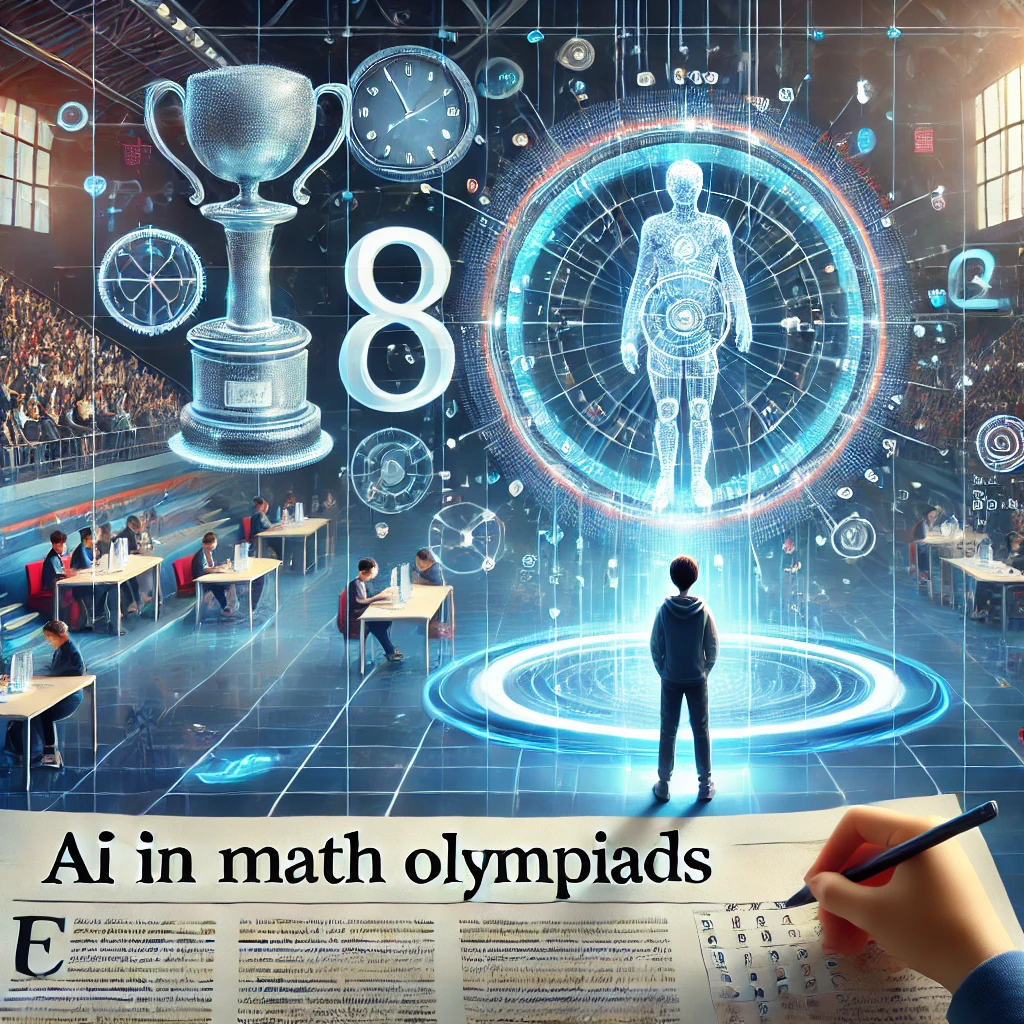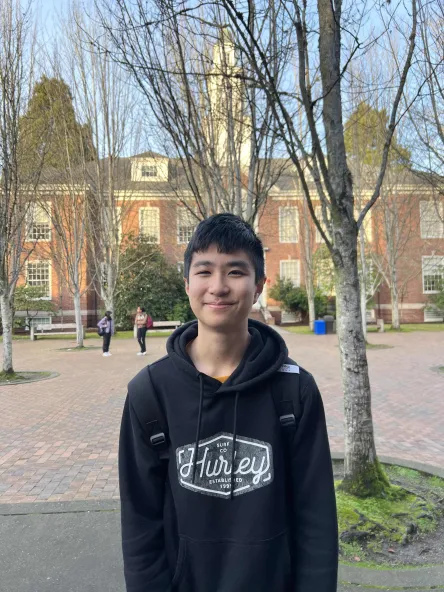In the 1990s, the chess AI Deep Blue beat world chess champion Garry Kasparov, marking the beginning of a technology revolution we can never turn back from. Today, thirty years later, robots and humans had a rematch at the IMO.
The International Mathematical Olympiad (IMO) is the world’s most prestigious math competition, where students from all around the world gather to solve a series of difficult math problems. But this year marks a turning point: Could robots beat humans at their own game?
In the past, movies and novels imagined a future where robots would become intelligent; they theorized that our lives and daily tasks would be automated by a machine we created ourselves. Some even worried that robots would eventually become smarter than humans.
Now we must treat this future as a real possibility.
Over the past decade, artificial intelligence has grown exponentially and taken over the news. Many corporations seized this hype to develop their own AI for a variety of purposes. One such AI is Google Deepmind’s Alpha Proof and Alpha Geometry. They designed it to solve and write proofs for algebraic and geometric problems, especially extremely difficult ones like those on the IMO. But what does this new development mean for mathematicians? And have we as humans been outcompeted by AI?
But I’m getting ahead of myself — first, we have to understand how Alpha Proof and Alpha Geometry works. How does an arbitrary problem go in and a clear step by step proof come out?
To do that we need to understand the thought process of a human. IMO gold medalist Alex Z. ’24 explains that “math problems are akin to chess or sudoku or any other game—for the most part I can quickly foresee which strategies are the most likely to make some amount of headway. There’s vision — being able to foresee approaches; intuition — being able to determine which is most likely to work; execution — carrying out an approach quickly, and efficiently identifying the next bottleneck.”
For humans, there is an intuitive strategy for figuring out these tough problems. But for robots, this undertaking is approached differently. Alex explains that AI “repeatedly spits out new claims and plugs them into the formal verifier to see if it was correct… it’s more like grasping blindly in the dark and seeing what it grabs onto… mathematics in its current form [is] especially palatable to ‘human intuition.’”
For centuries, mathematical theorems and ideas have been constructed in a manner attuned to human intuition. This enables humans to be more creative and see solutions directly, but it means that the current form of mathematics isn’t yet intuitive for machines. Nevertheless, AIs’ advantage lies in their swift calculation speed — they can simply brute force their way towards the correct solution. Clearly the strategies of machines and humans are different; this is a given. But which would be better at solving math problems?
AlphaProof and AlphaGeometry received 28 points out of 42, which was one point away from a gold medal. It was able to correctly answer an impressive four out of the six questions on the exam. Though the two AIs solved one problem in under a minute the others took days, highlighting the inefficiency of its guess-andcheck strategy.
Clearly robots have not completely phased out top-level mathematicians. However, AI’s performance in this year’s IMO greatly showcases the speed at which robots are advancing and their future potential. An anonymous former Lakeside student speculates that “if you give the AI enough computational resources, I have faith that it will be able to solve problems faster than humans eventually.”
Humans were created by nature; nevertheless, throughout the past millenniums our analytical thinking has brought us to the top. Now the very trait that has made us special is being challenged. Machines were created by humans, and throughout the past decade they have risen to the top and begun to control our lives.
So what now? What about the dozens of people who are deeply passionate about math? The former Lakeside student and coder offers this piece of advice: “Think about why math is important to you.”
The IMO is a competition that was created by humans for humans. Like Alex said, it is a mental drill just like chess or sudoku. Is there any underlying reason why we test ourselves with these exercises?
Let’s take a look at chess. No human has ever beaten the Stockfish chess engine, yet millions of people all over the world still play chess every day.
I brought up this strange phenomenon to Brandon Jiang, the youngest ever Washington state chess champion and third best chess player in North America, and here is what he had to say: “I spent hours strategizing… analyzing hundreds of games… taught me not to lose my cool, to accept my weaknesses and to be flexible, patient, and resilient. I learned how to lose gracefully and improve for the next game.”
Chess is not only a game about strategy; it is also a game about resilience and hardwork — a trait that is crucial to one’s success not only in their occupation but throughout one’s entire life. The prize you win isn’t a gold medal, but instead the lessons you’ve learned throughout your preparation. Chess and competition math reflect each other they are both puzzles where the more you train the better you get. Like chess, math competitions will always be a goal that every passionate student can work hard towards and feel proud of when they win this will never change, AI or not.
When asked if he was concerned about the potential overtake of AI in classes, Brandon responded with this moving anecdote:“I joined a small, nonprofit organization that provides free lessons to children of underprivileged households. One of my Cambodian-American students showed significant progress over the two short months I spent teaching her… the program allowed me to discover that I could be a mentor and a role-model to others through my passion for chess.”
What Brandon said lies at the heart of what this new AI revolution means for humans. Humans have prized intelligence and our ambitious needs for growth as cornerstones of what makes us human. However, whether it is in chess or at the IMO, the uniqueness of humans does not solely come from our ability to analyze. We build massive cities, spark passion in our community and unite mathematicians from all around the world. It is not just our intellect; it is because of our human interconnectedness. AI might become smarter than us, but they can never form bonds as powerful as us.
What will happen with AI? The future is uncertain. But machines were not made to hurt humans — they were made to do work and let us do the living. Instead of fighting this new revolution, if we pause on our constant need for advancement, then take a step back and look around, the gloomy prophecy that was brought about in sci-fi novels 30 years ago will never come true. Instead, we may find something in our interconnectedness that is far more valuable than we could have ever imagined.


